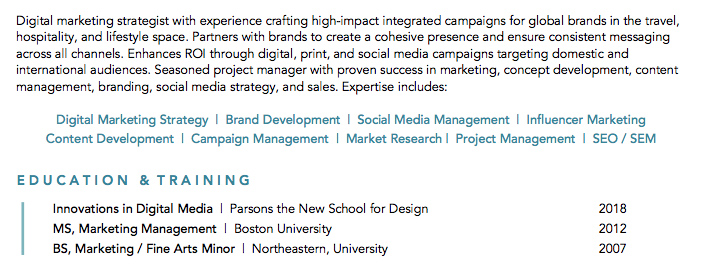
The US cannabis industry is rapidly expanding, with hundreds of thousands of individuals already working in the market and poised for further growth. This expansion has only continued to open up a diversity of job opportunities across a number of different specialties. Some of the fastest-growing areas have included finance, legal services, software and technology, education, advocacy, and cultivation roles, drawing candidates from across the country to emerging and established markets like California, Colorado, and Massachusetts.
While the market grows amidst lingering legislative and regulatory issues, the challenge for many job seekers lies in entering into an industry with little or no hands-on experience. As an industry that is still budding (no pun intended), few people have years of viable cannabis industry experience that they can portray on a resume.
If that’s the case, then great – this article is not for you.
If your goal is to break into the cannabis world by leveraging your experience from another industry, keep reading.
My expertise as a resume writer remains in helping individuals navigate career transitions. Regardless of your current or intended industry, a key aspect of successfully changing careers involves identifying and marketing your transferrable skill sets. In other words, what experience, knowledge, or skills did you acquire in your previous career that – while in a different industry – can be applied to other jobs, industries, or organizations?
Transferrable skills are typically those which can be applied to a position regardless of the industry. They provide a potential bridge between the experience you have and that which you are trying to build, by highlighting commonalities. In other words, if you are employed in the same role at ABC company in one industry, you could easily transition into a similar position at XYZ company, despite that company being in another industry altogether.
It’s all about providing value to a potential employer, and being able to transition seamlessly without direct experience.
How Do You Identify Transferrable Skills?
I typically break transferrable skills down into three different buckets for the purpose of resume writing:
Soft Skills / Personal Attributes: Often referred to as “soft skills”, these include personal qualities and learned attributes such as leadership, work ethic, ability to manage deadlines, ability to work through challenges, teamwork, creativity, and accountability.
Hard Skills: “Hard skills” can be thought of as your hands-on capabilities and talents. They include learned skills that are required to succeed in the role, but may not be limited to certain functions or industries. Examples might include writing, client relations, selling, customer service, budget/P&L management, persuasion, public speaking, stakeholder management, and presenting.
Overlapping Experience: Another way to bridge the gap between industries is to look for overlapping experiences that may be relevant. Separate from hard or soft skills, this may include experience working with similar types of customers, brands, or products, personal knowledge of the industry, outside or nonprofessional experience that is relevant (volunteer or advocacy work), or related education.
What are Some Examples of Transferrable Skills?
For the purpose of this article, let’s assume your current occupation is a sales associate in the enterprise business software space, and you wish to enter into a similar role selling cannabis products to regional dispensary chains. Your current customers are Fortune 100 organizations and you wish to sell to individual dispensaries and regional suppliers. Here are some examples of transferrable skills and experience that – while gained in software sales – could be applied to the cannabis space:
Customer Service and Account Management: If you have a talent for building relationships and rapport, you could parlay that skill set easily into a cannabis sales role. Sales are all about relationship building, establishing trust, and providing ongoing value to your customers. The ability to not only build those relationships, but also retain and grow them is key, particularly in an industry like cannabis where competition is continually expanding.
Deep Product Knowledge: In our current example, there is little overlap between enterprise business software (unless it’s directly aimed at cannabis companies), and cannabis products. However, to be a successful budtender or salesperson in the cannabis space, you would need to possess a very comprehensive knowledge of the product, its various strains, and compounds. Having the ability to retain a high volume of product knowledge and match those recommendations based on the customer’s unique needs would be well-suited for a sales role in the cannabis space.
Experience Working With Similar Products or Customers: It may be as straightforward as translating your experience selling software to Fortune 100 companies, to selling point-of-sale software to cannabis industries. In this case – and regardless of the product itself – your experience selling to highly-regulated organizations that require you to bypass a lot of “red tape”, may come in handy. The same goes for the type of customers who would be using the products you’re selling – if you bring an understanding of the market, it’s easier to build knowledge of the brand and its products.
Related: Unique Skills to Include on Your Resume
Experience Working With Similar Company Types: While you may lack direct experience when it comes to the product you’re dealing with, think about whether any parallels exist between the types of customers you would be selling to. By this, I am referring to the decision-makers purchasing directly from your organization, versus the end user. Do you have experience selling to regional chain stores, retailers, high-end boutique shops, or other types of businesses that would be applicable in the cannabis space?
Knowledge of Industry Trends & Legislation: Are you someone who makes it a point to continually stay abreast of evolving changes in your industry? Continually evaluating the market, the customer, and the competitive positioning of the product or brand is a key part of maintaining market share and building new business in any field. Cannabis is an industry that is evolving at a rapid pace, and maintaining an understanding of where it’s headed will position you for success.
Passion for the Industry & Product: A successful salesperson is essentially an evangelist of their product, brand, or service. Selling a product is largely about persuasion, which comes more easily to someone who conveys passion, confidence, and trust in the product they’re marketing. Cannabis is an industry that is still growing and overcoming significant hurdles. It’s a difficult industry to break into and be successful in, and requires someone who is passionate and enthusiastic about the field. As mentioned earlier, cannabis is a rapidly evolving industry, and keeping up with the plethora of regulatory and legislative changes requires a certain level of attention, commitment, and passion for the work.
How to Showcase Transferrable Skills on the Resume
A functional resume format is sometimes used to highlight transferrable skills over experience. I recommend using more of a hybrid (or combination) format that highlights both. Here are a few ways you can highlight your transferrable skills and experience in the resume:
Resume Summary Statement or Objective Statement: Use your summary or objective to bring your transferrable skills and experience front and center. This is essentially your branding statement, and it sets the tone for the resume. If you want your transferrable attributes to be the focus of the resume, highlight them prominently in your summary or objective statement.
Related: 4 Brilliant Resume Summary Examples
Skills Section: Call out a separate section that highlights your skill sets or areas of expertise – either under the summary or at the end of the resume. Pay attention to how you order the skills, and make sure the most relevant ones are prominently displayed.
Experience: Minimize the focus on skills, experience, or language that is specific to your current industry, and that don’t add value to the role or field that you’re targeting. Instead, talk about responsibilities, projects, and impact that directly showcase your transferrable skills, and how they added value to the role.
Education / Memberships / Volunteer & Freelance Work: Highlight any relevant training, outside or volunteer work, or professional/trade affiliations that you’ve been involved with outside of your current job. Those can include online or in-person seminars, workshops, classes, networking events, professional conferences, or relevant projects.

Example of a Resume Summary Statement & Skills Section
Of course, there are certain specialties within cannabis that are difficult to transition into without direct experiences, such as growing – which require in-depth knowledge of plant strains, cultivation techniques, and horticulture. The best thing you can do is to first understand what area of cannabis interests you and research the key players in the field. Look at what kinds of roles they’re hiring for, canvas LinkedIn to see if they have a company profile, and who they’ve hired. Then take an inventory of your own transferrable skill and experience. What are your most marketable assets, and where might there be a gap that you need to fill – either with additional training or experience?
In Conclusion
When it comes to job searching and resumes in general, relevance is key. Understand the applicable skills, experience, and knowledge that you bring to the table, and how those things can bring value to a potential employer.
Related: How to Get a Job in Cannabis
What Next?
Need help to identify your transferrable skills and experience? We can help you create an optimized resume that articulates your most marketable attributes for the cannabis space. Contact us to learn more.

